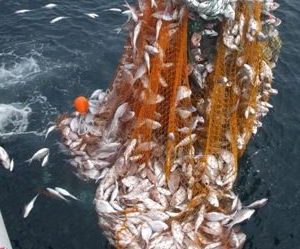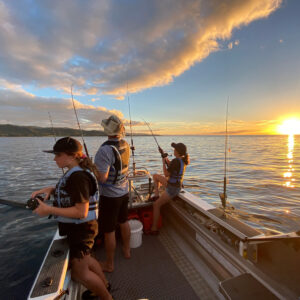We did it. In just 18 working days our fisheries team developed responses to nine fisheries management proposals, including a comprehensive and pragmatic solution to rebuild the east coast tarakihi stock. The latest science shows that decades of trawling from Northland to Otago has reduced the stock to 17% of its original size, below acceptable management levels. This depletion has had a major impact, reducing catches of take-home fish and overall recreational catch.
The Minister of Fisheries had to make a decision by October 1st to restore abundance. LegaSea is pleased that thousands of people stood up and signed the Time Out for Tarakihi petition supporting Stuart Nash in making a bold decision to cut commercial catch levels to achieve a timely rebuild.

Fishers between Wellington and East Cape (Area 2) benefit from the northward movement of tarakihi, from spawning areas in the south and around the Cape. Favourable conditions in 2007 and 2009 meant that more tarakihi survived and grew. These 9 and 11 year old fish have contributed to an increase in Area 2 catch rates, but will soon be fished out.
It is sometimes hard to reconcile reasonable catches when we know the stock is depleted. However, catch alone is not a good indicator of stock abundance. In our submission we highlighted our concerns that relying on one or two strong year classes is a high risk strategy.
High risk because catches can be maintained by targeting fish aggregating for spawning or feeding, but this doesn’t mean the whole tarakihi population is healthy.
For a long-lived species such as tarakihi we need to be more conservative, and that’s why we supported the Minister cutting commercial catch limits by around 65%. It is important that good years of recruitment are protected so they can contribute to a faster rebuild of the whole stock.
The science supports a 65% cut to rebuild the fishery within 10 years, with reasonable certainty across all regions, so we need to reduce fishing pressure everywhere for a while.
Our fisheries and natural resources belong to all New Zealanders so when they become depleted everyone is affected. Whether that is through loss of future productivity of the marine environment, the family missing out on a fishing experience, or if it’s the local commercial fisherman who is forced to rent catching rights from quota shareholder investors.
It is time we rescued our fisheries and restored them to healthy levels. This restoration will only occur if we hold the decision-makers responsible. We can do that, if we stand together. Please join the team and let’s make our voice count.





